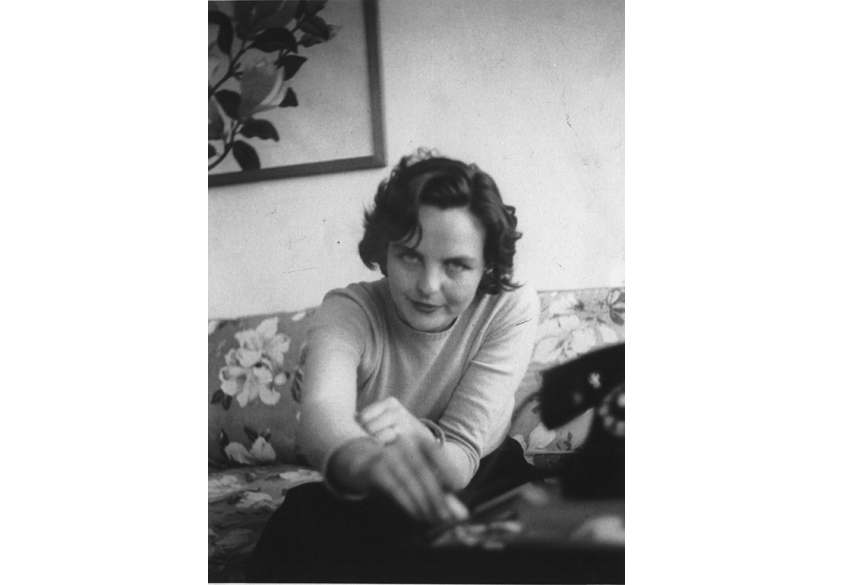Has the Mitford saga delighted us long enough? Some 17 non-fiction books about the family, mostly by its own members, have now been published; the first, in 1960, was Jessica Mitford’s memoir Hons and Rebels, and the latest is this biography. In between there have been four fat books of letters, five individual biographies (the first of Unity, the fascist one, in 1977, then two each of Nancy, the writer and Diana Mosley, the other fascist one), two group biographies and five more autobiographies: a sequel from Jessica, and two each from Diana and Deborah, the Dowager Duchess of Devonshire, the youngest of the sisters and the only one still alive. Nancy Mitford’s wildly successful fictional account of her family, The Pursuit of Love, published in 1946, started the whole thing off.
Leaving aside the puzzle of what on earth this torrent of words about a family of no outstanding achievement signifies, what is there left to say? This book is written by a Californian playwright and concentrates on Jessica Mitford’s American life. Swinbrook, the Hons Cupboard, the rampages of Farve and the nursery politics are all over within 20 pages. This shift of emphasis is welcome, as is the author’s refreshingly bemused attitude to British upper-class language and customs. But her own idiom, a sprightly Americanese, can be irritating, and she has not avoided the trap, awaiting all biographers, of falling under her subject’s spell. It is discouraging to read that she considers that Jessica Mitford, aged 12, and living in the ‘bucolic’ Cotswolds, was ‘an autodidact well aware of world events.’
But then Jessica, known to her family and friends (such as this reviewer) as Decca, was rather spellbinding. She was, of course the communist one, and perhaps the most remarkable. Unlike her sisters, who made predictable marriages within their social circle, she was the one who ran away, first, aged 17, to the Spanish Civil War with her first husband, Churchill’s nephew Esmond Romilly, then to America where she ended up married to Robert Treuhaft, a left-wing American lawyer of Hungarian Jewish extraction, and living modestly in Oakland, California.
Her revolutionary socialist politics were as fierce as her fascist sisters’, but her great cause, the fight against racial discrimination, was as right and admirable as theirs was deplorable and wrong. She was a good writer, a fearless muckraking journalist who used her talent not just to entertain but to expose (most memorably the American funeral industry) and provoke.
She disclaimed her family’s advantages and privileges and openly hated much of what they stood for, but she never lost touch with them and maintained, to the end of her life, her essential Mitfordness: the confident air, the drawling accent, the jokes and private language, the stiff upper lip (an American friend called Decca’s concrete), the stunning blue gaze, the ruthless charm.
One thing this book makes very clear is that Decca’s politics were not, as has been suggested, just a family tease. She was a serious communist activist at a time when to be so in America was uncomfortable; not only was she twice called before the House
Un-american Activities Committee, but her passport was withheld for nearly 20 years and she was constantly under FBI surveillance. She took real risks in supporting the civil rights campaign of the 1960s. Brody tells how one night when leafleting before a party meeting Decca was assaulted by a young black man who tried to rape her. Nothing was said at the time, and only a handful of trusted people have ever known, until now.
When, in 1957, she and her husband left the party, it was quietly. They did so, she always said, not because of the invasion of Hungary or Stalin’s atrocities, but because the Party had become hidebound and
ineffective.
Brody has dug deep into the records, published and unpublished, and spoken to many of Decca’s Californian friends, mainly a group of strong like-minded women who loved and supported each other through thick and thin. They overlooked her inability to cook or clean. and appreciated her wit and her love of a good party. It was they who saw her through the agonising time in 1955 when her eldest son, Nicky, was killed in a road accident at the age of ten. Dinky, her daughter by Romilly, recalls her fury at overhearing a stranger comment that it would not have happened if Mrs Treuhaft had stayed at home.
For all her evident admiration of her subject, Brady does not ignore the difficult side of Decca, who as she got older and more celebrated could be imperious, had trouble with her husband and her children, and drank too much. But she kept working, faced illness and death with characteristic courage and never wavered in her loyalty to the people and causes she loved. Perhaps the value of this book lies in the simple fact that it is written by someone interested in Decca in her own right, for whom her background and role in the Mitford family saga are not the most important things about her.






Comments